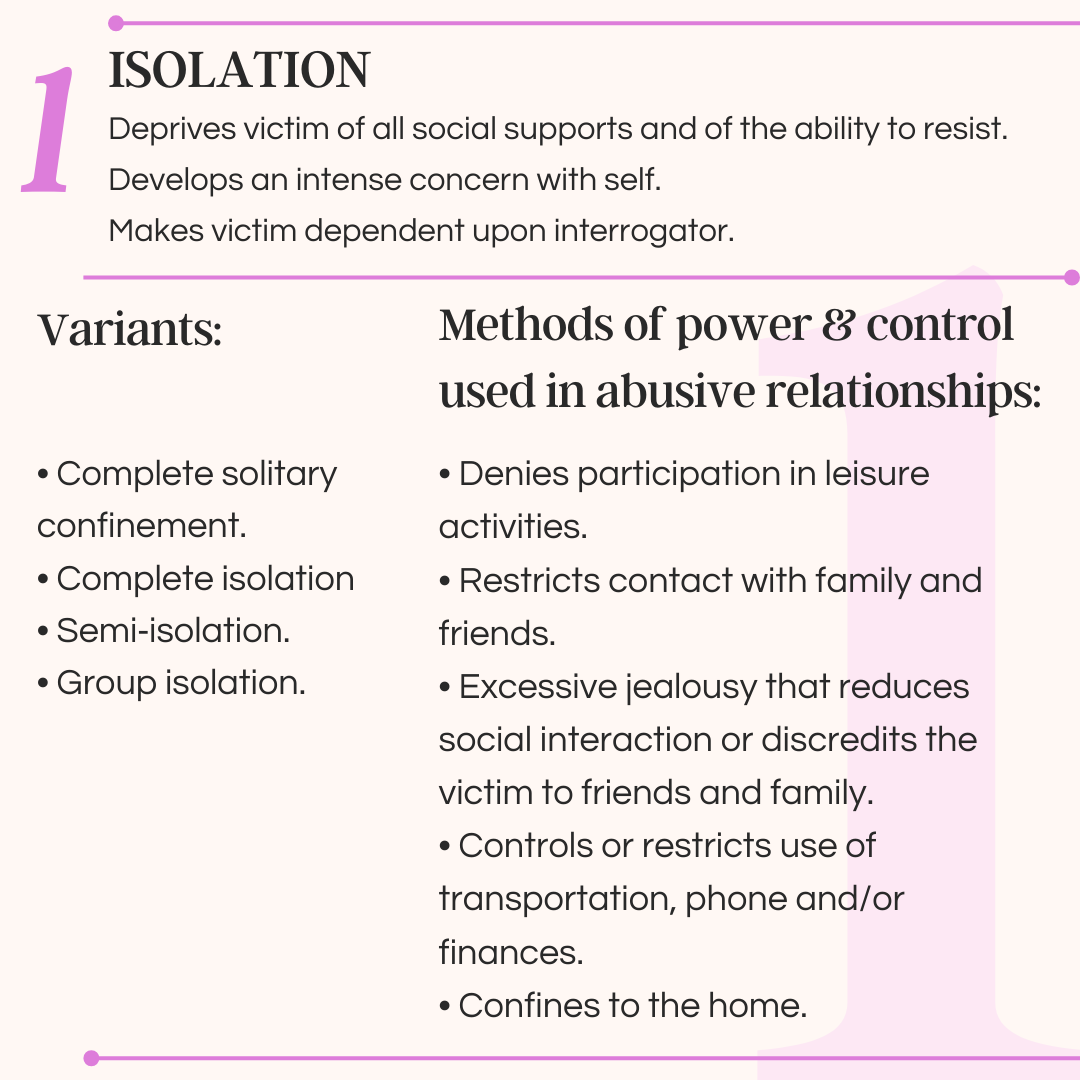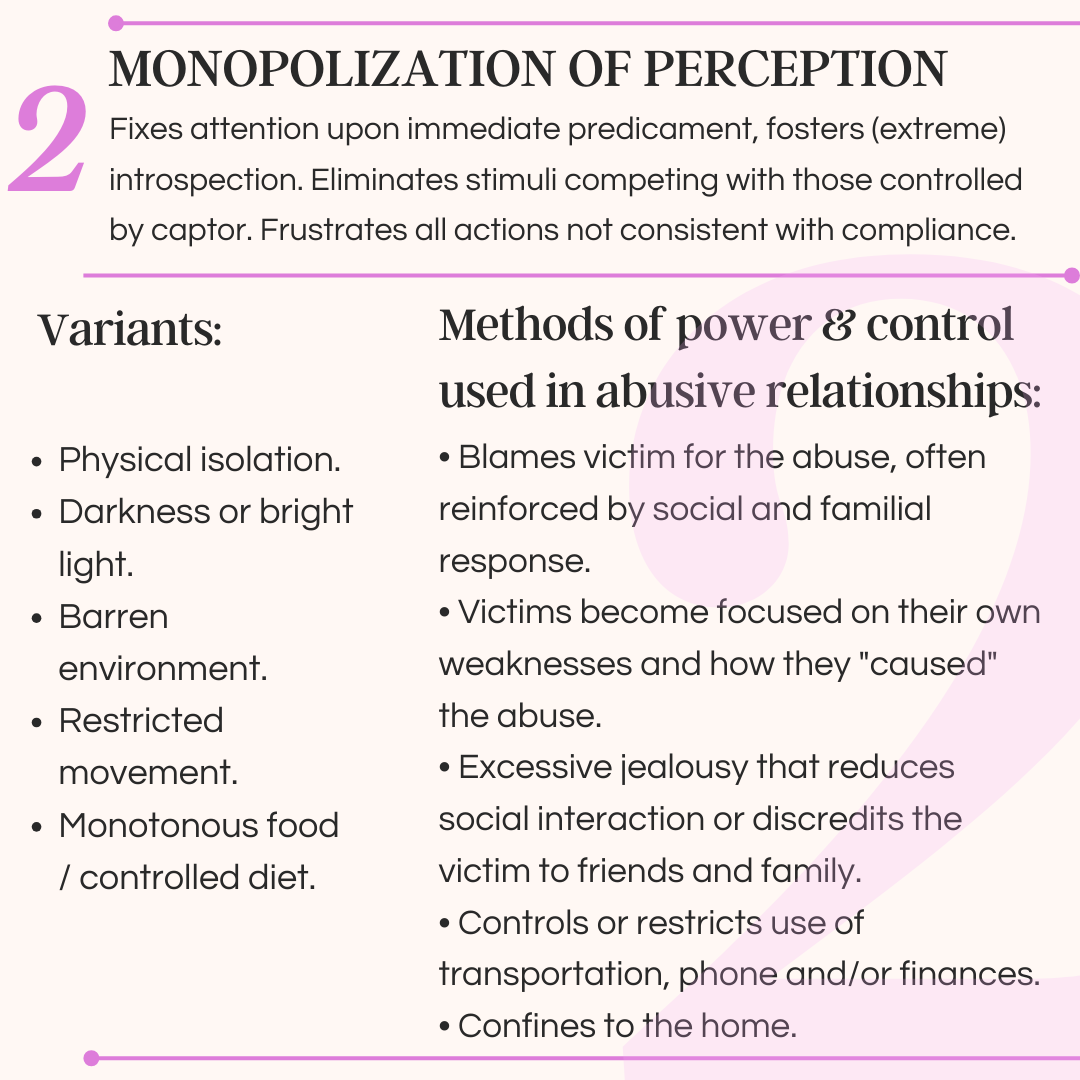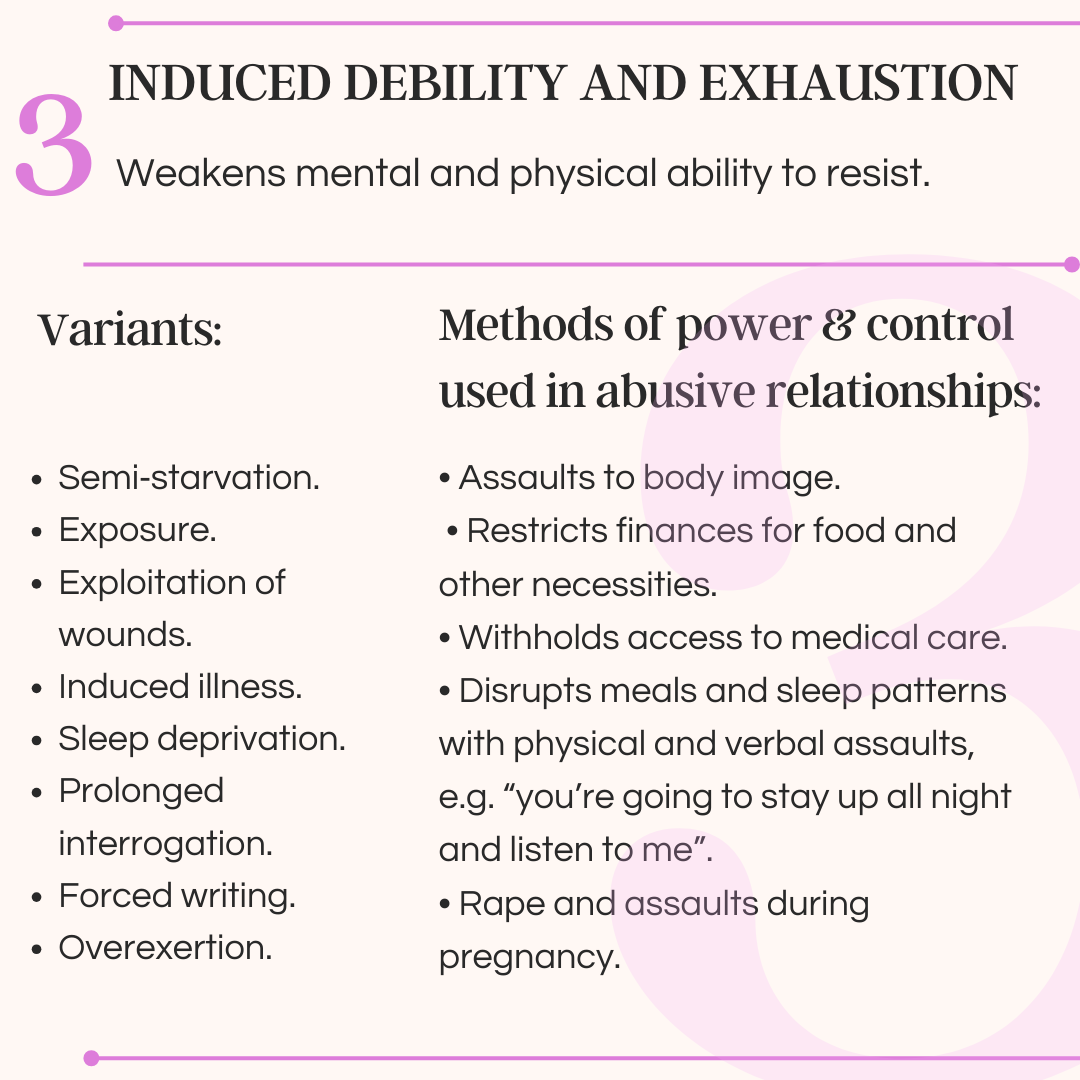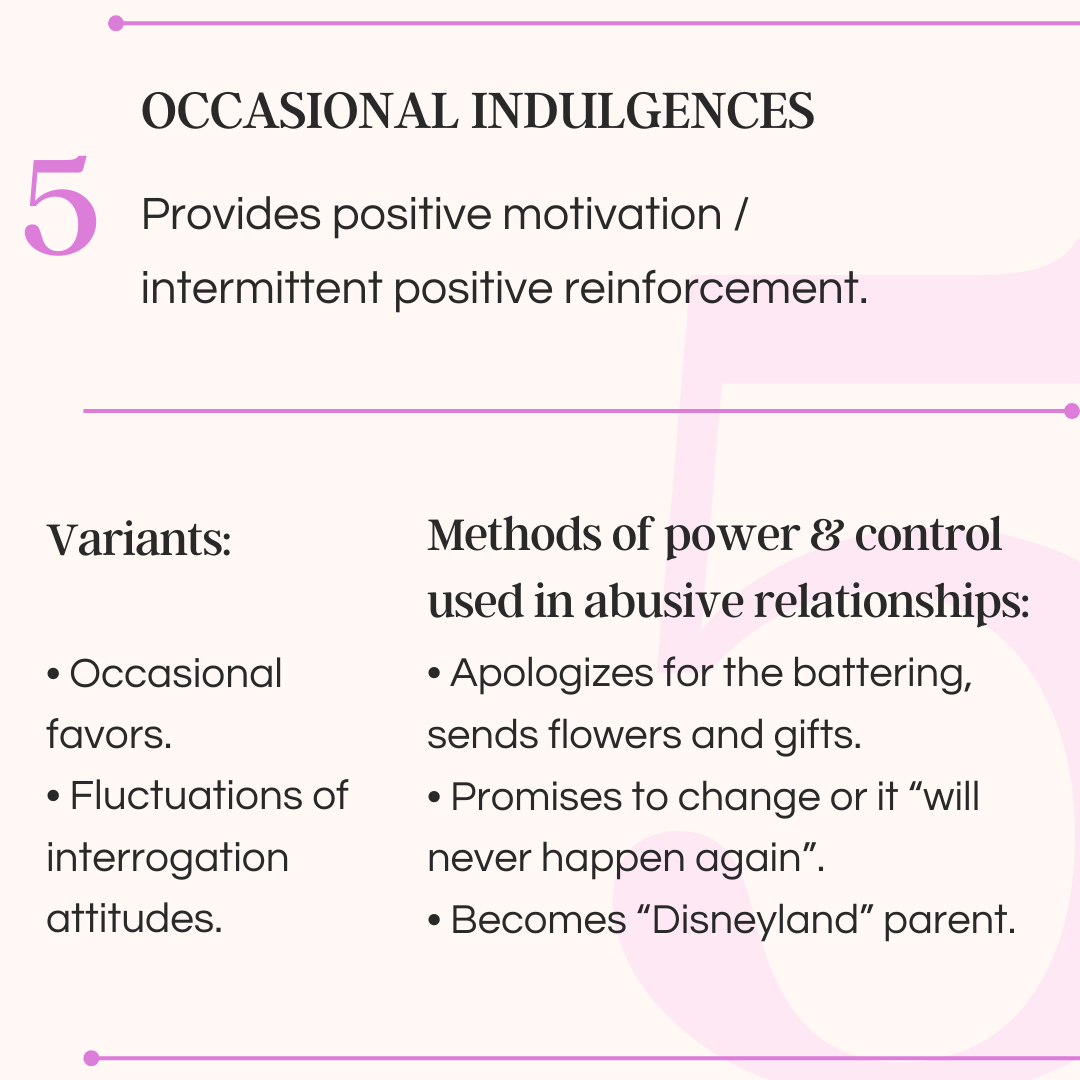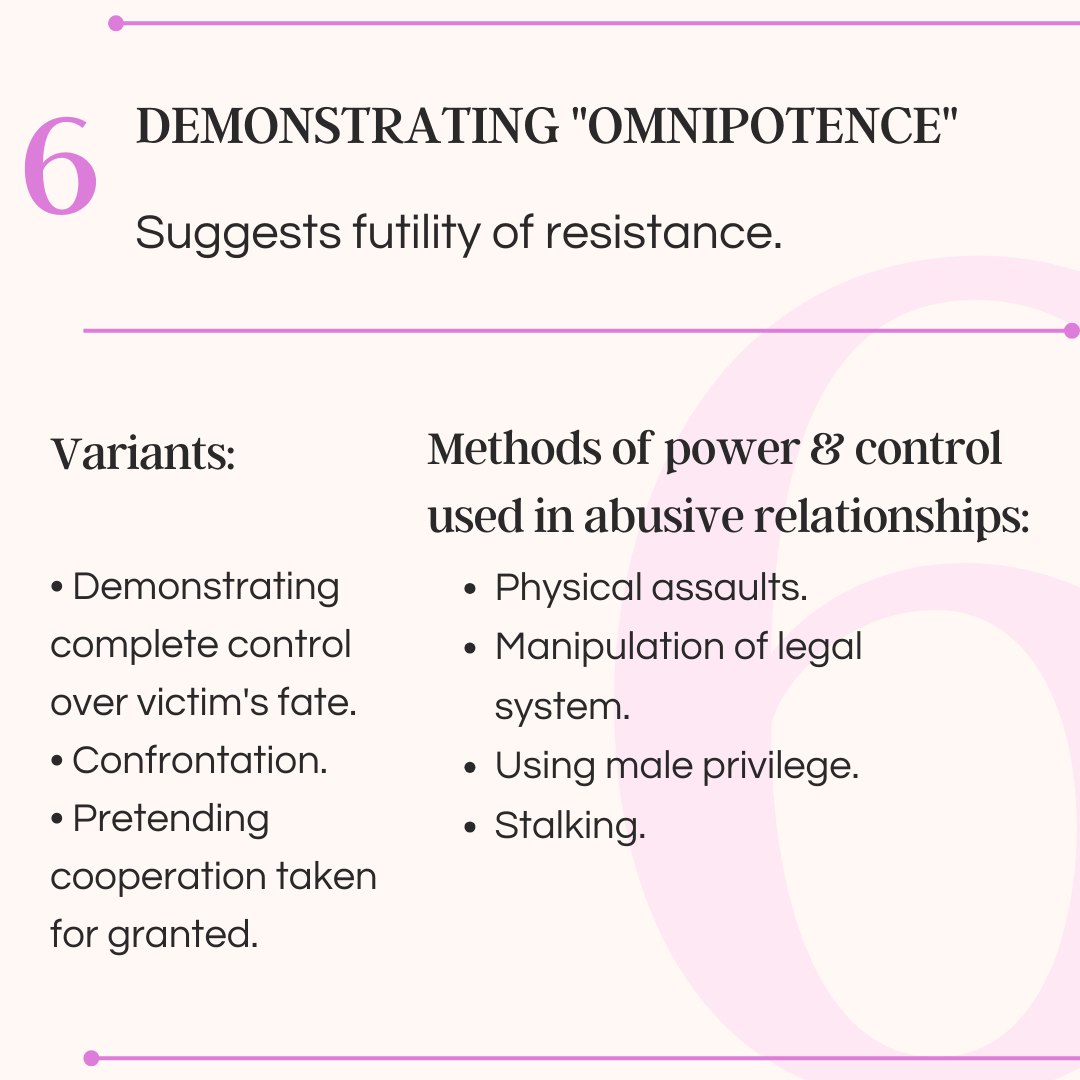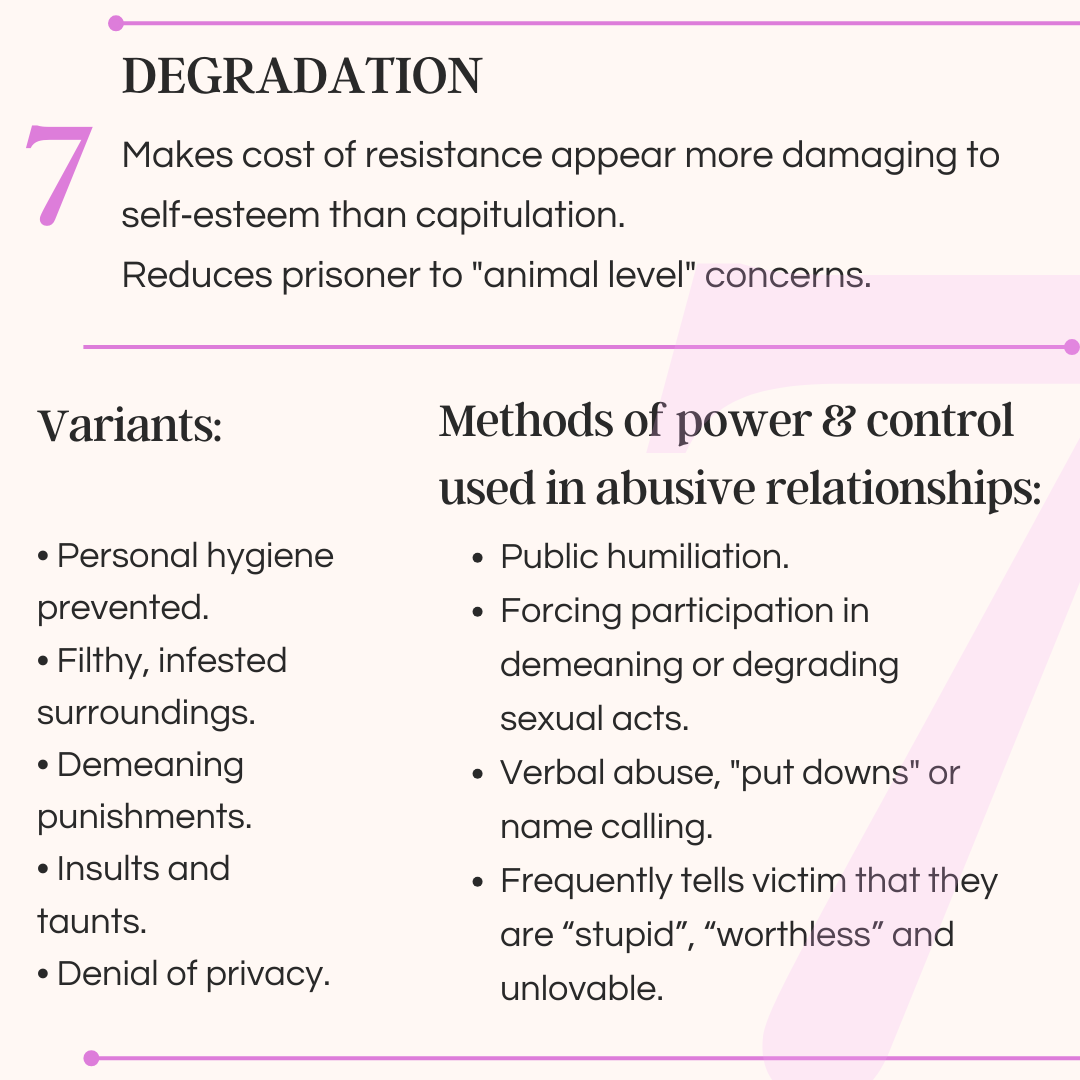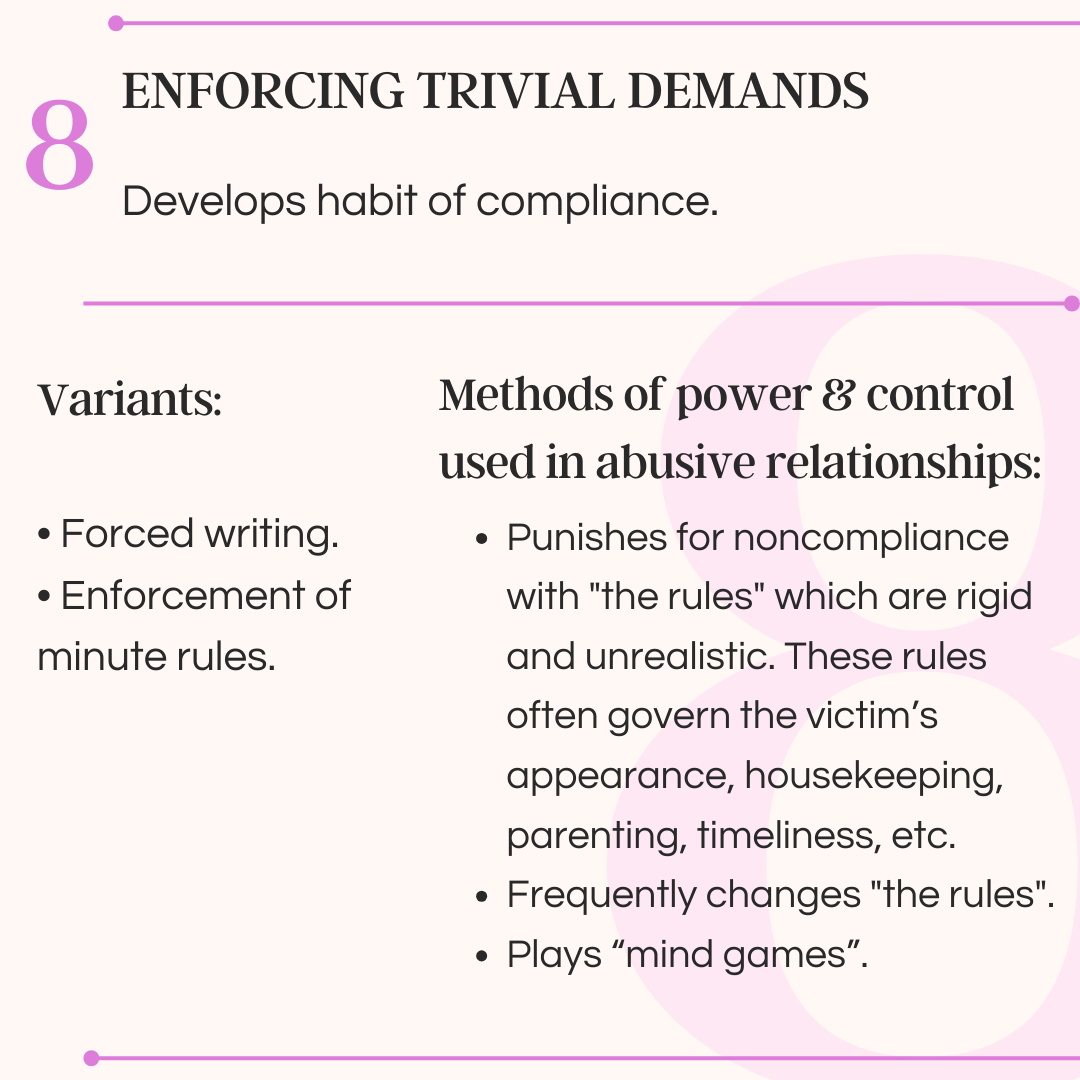Covert abuse and the monopolization of perception
Monopolization of perception is a sinister tactic employed by covert abusers to isolate and dominate their targets, manipulating focus onto themselves. Even after the relationship ends, survivors of covert abuse and coercive control may find themselves ensnared in the abuser's attempts to prevent them from moving on.
Join Ruth Darlene, the Founder and Executive Director of WomenSV, as she explains the lasting impact of monopolization of perception on survivors, illuminating the path to reclaiming freedom.
Biderman’s Chart of Coercion is a table that was originally created to describe coercive methods of torture used on prisoners of war. It describes eight tactics of psychological torment that can also be applied to the psychological abuse seen in cases of domestic violence.
Monopolization of perception is one of the eight psychological torture tactics listed in Biderman’s Chart of Coercion.
Image source: Sage Publications
The full chart lists the following methods of coercion:
Isolation
Monopolization of perception
Induced debilitation and exhaustion
Threats
Occasional indulgences
Demonstrating “omnipotence” and “omniscience”
Degradation
Enforcing trivial demands



